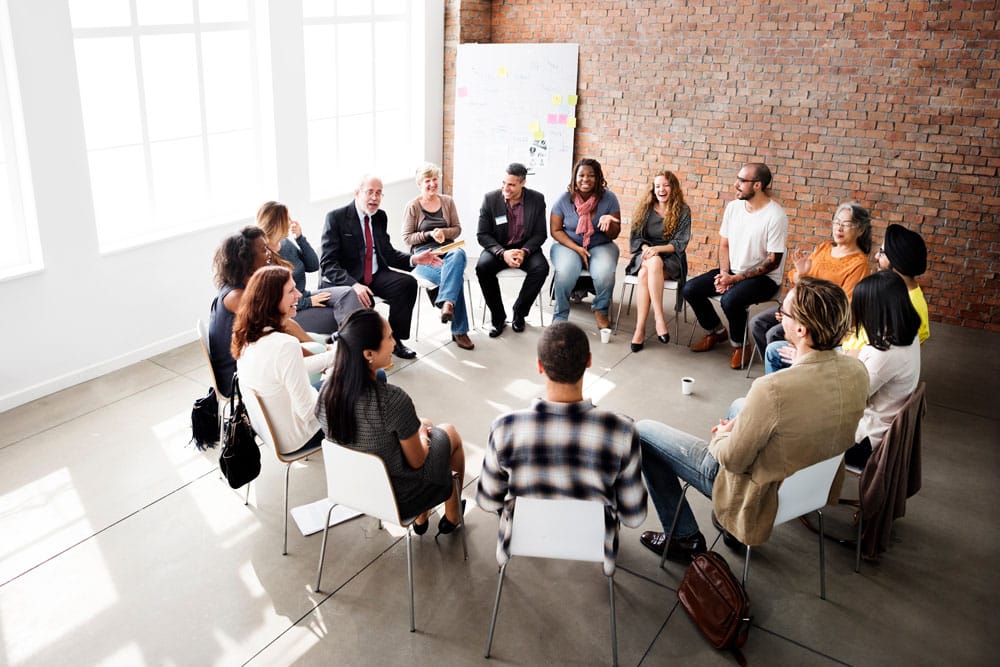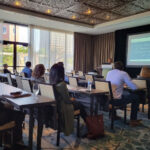On the Frontline
On the Frontline
Our Industry’s Frontline is Talking — Are we Listening?

stock.adobe.com / Rawpixel.com
Gosh, it’s great to be providing training face-to-face again. Don’t get me wrong—the virtual thing was cool, but there’s nothing quite like getting to see and respond to the individual expressions and reactions of our frontline team members. I knew I’d missed it, but until recently, I hadn’t realized just how much.
I’m fortunate that my work travels take me to a variety of settings: national and regional conferences, large cities, small towns, airports, medical centers, hospitals, and campuses of every size. We gather for training in conference rooms, classrooms, break rooms, empty commercial buildings—you name it, we learn together in it. I think the most unique location I’ve ever provided training was adjacent to a transit bus service bay. Look, just tell me where to be and when to start talking, and we will get started.
While the training topics and settings may vary, one aspect of these education sessions remains consistent: good people sharing stories of challenging customers, increased hostility, and aggressive rudeness. From coast to coast, the rising number of unpleasant encounters with the public is noteworthy. Our workforce is dealing with bad attitudes, incivility, and disrespect. It’s happening in-person, on the phone, over email and across all social media channels. You don’t have to be a member of our industry’s frontline staff to have noticed this disturbing trend in today’s society. You’ve likely encountered some amount of rudeness and hostility in your own daily work life. It’s everywhere and somewhat inescapable. People are acting out for a variety of reasons and feeling quite justified in their public outbursts. The outcome is a general decrease in job satisfaction with a real potential for career burnout. The stress it can generate for the person on the receiving end of this hostility is real.
We could talk all day about the potential causes driving this unpleasant trend, but instead, I’d like to focus on some of the ways we can support and develop our teams.
Training is Essential
How are we preparing our teams to address these harsh words and volatile attitudes? Training is essential and should be on-going. I’m not necessarily talking about hiring an industry professional to provide onsite training sessions directly to your team (but hey, it’s a good place to start). Every organization has a number of low-cost, even no-cost training and development tools available to them. To get you started, here are a few ideas to consider as you prepare your team to professionally represent themselves and our organizations.
- Group discussions. Share tactics and potential responses that best represent your team members and align with your organization’s objectives. Help them to collaborate and create a list of professional responses. This exercise can help your team in two ways—it creates a deeper well of professional responses to apply to challenging exchanges, while developing their sense of confidence in the professional messages they communicate.
- Assign team members to view online training videos, TED Talks, etc. There are an infinite number of online/virtual options that can assist your team in gaining a broader understanding of conflict resolution and how we can learn to approach these situations from a different perspective. These resources can be viewed individually or as part of a group, followed by a group discussion. How do the points made in the resource apply to what we do?
- Books and professional articles. Much like virtual training options, there’s a wealth of applicable knowledge and skillsets that can be gained by reading industry articles and books focused on effective communication.
- Peer training meetings. If someone attends a training or conference session (in-person or virtual), or reads an applicable article or book, ask them to prepare a few talking points on the main idea or topic and share it with the rest of the team. It drives home the lesson for the person presenting the concept and can also be a positive and impactful experience for their peers.
The bad attitudes and encounters are still going to happen, but we can make the effort to better prepare the team to weather the storm of hostility when it happens and find positive ways to help them to build their resiliency. Putting effort in to helping your team develop their professional skillsets will always be worth the investment. The outcomes include less stress, happier employees, more job satisfaction, less turnover, and a broader view behind the services we provide on behalf of our organization.
Cindy Campbell is IPMI’s senior training and development specialist. She is available for customized in-person or virtual training; click here for details.
-
Cindy Campbellhttps://parking-mobility-magazine.org/author/cindy-campbell/January 1, 2022
-
Cindy Campbellhttps://parking-mobility-magazine.org/author/cindy-campbell/March 3, 2022
-
Cindy Campbellhttps://parking-mobility-magazine.org/author/cindy-campbell/March 3, 2022

CAPP Professional: Larry J. Cohen, CAPP
Larry J Cohen CAPP is Executive Director at the Lancaster

CAPP Professional: Melinda M. Alonzo, CAPP
Melinda M Alonzo CAPP is Senior Director of Parking and

CAPP Professional: George Richardson, CAPP
George Richardson CAPP is Manager of Parking and Transportation for







